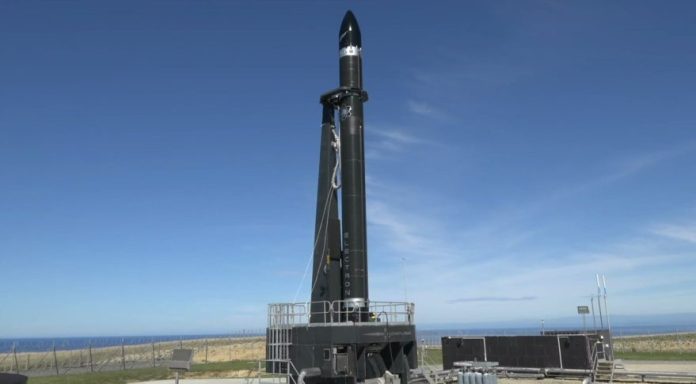Leader and satellite manufacturer in dedicated small satellite launching, Rocket Lab, has declared its second Electron assignment is scheduled to start only three weeks in a demonstration of the organization’s rapid launch capacity.
The assignment,’Pics Or It Didn’t Happen,’ is scheduled to release in Rocket Lab Launch Complex 1 Pad An on New Zealand’s Mahia Peninsula no sooner than 3 July, 2020 UTC- only days following the successful launching of Rocket Lab’s latest assignment,’Don’t Stop Me Now,’ about 13 June, 2020 UTC. The back-to-back assignments will signify the quickest turnaround between assignments of Rocket Lab .
‘Pics It Didn’t Happen’ will deploy seven small satellites into a 500km round low Earth orbit for a variety of customers, such as Spaceflight Inc.’s customer Canon Electronics, as well as Planet Earth and In-Space Missions.
The principal payload aboard this particular mission, Canon Electronics Inc.’s CE-SAT-IB, was secured by satellite rideshare and assignment management supplier Spaceflight Inc.. The mission objective for your CE-SAT-IB satellite is to demonstrate Canon Electronics Inc.’s Earth-imaging technology with high-resolution and wide-angle cameras, as well as test the microsatellite for mass production.
The five spacecrafts are the newest generation of SuperDove satellites made by Planet. Planet’s satellites are now capable of accomplishing the full landmass of the Earth .
This dataset helps governments, students, companies and investigators discover patterns, detect early signs of change, and make decisions. These SuperDoves, Flock 4v, are equipped with brand new sensors to enable higher picture quality with better, more vivid colors and accurate surface reflectance values for algorithms and evaluation.
The final spacecraft aboard Electron for this particular assignment has been provided by British small assignment prime, and In-Space Missions. Even the Faraday-1 6U CubeSat is a assignment offering a low-cost route to orbit start-ups, associations, and corporate R and D classes.
Moreover, it supplies a very first flight demonstration of payload that can enable payload capacities . Faraday-1 is the initial flight of this Faraday service with four future satellites already under contract.
Peter Beck, Rocket Lab founder and CEO, says launching missions only days apart illustrates Rocket Lab’s unique capacity to offer space access to satellite customers.
“Rocket Lab has removed the small sat waiting space to get orbit. We’ve focused greatly on our fast launch capacity in the past few years and we are pleased to be putting into training for the smallsat community with jumps only days apart,” explained Mr. Beck.
“We are excited to keep on expanding our usable space capacity with our third launching pad coming online before the end of the calendar year, as well as the continued growth of our Photon satellite software that allows our small group operators to do more, spend less, and also reach orbit faster.”
With a brand new Electron launch vehicle assembled every 18 days, the Rocket Lab remains on target to deliver monthly jumps for the rest of 2020 and to 2021, including the corporation’s original launch from Launch Complex 2 to its U.S. Space Force at Q3 and a mission to the Moon for NASA aboard Electron and Rocket Lab’s spacecraft bus platform Photon at 2021
– Advertisement –
